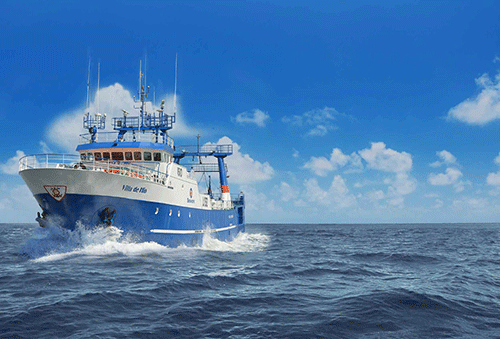Seawork Fish Processors has approached the High Court in order to compel a joint venture of six companies to sell its fishing rights exclusively to it and no other parties.
However, the companies that make up the joint venture company, Green Rose Trading, have refused to sell their rights at reportedly cheaper rates to Seawork.
In addition, they claim Green Rose, with whom the company entered into an agreement, currently does not own fishing rights.
Seawork claims that it entered into a ‘quota participation agreement (QPA)’ with Green Rose Trading, a joint venture company in January 2016. The agreement lasted for five years and after it lapsed in December 2020, it was extended for another five years.
As per the agreement, Green Rose would sell the fishing rights allocated to it by the fisheries minister exclusively to Seawork for harvest. Furthermore, the rights shall include any and all bycatch allocated by the ministry.
Because of the exclusive agreement, the parties agreed it would be prudent for Green Rose to acquire 15% shares in Seawork, through Namhake.
Green Rose owns 33% shares in Namhake, while Namhake has a 15% stake in Seawork. Namhake acquired the 15% stake in Seawork for N$30.6 million.
Seawork claims it does not understand why Green Rose would not honour the agreement, when they made a lot of money through their partnership and its shareholding.
Since their agreement six years ago, the joint venture has made about N$80 million.
“The first respondent (Green Rose) suddenly now refuses to sell – unfortunately driven by a desire of personal riches in blatant breach of their contractual obligations,” said Jürgen Sander, the managing director at Seawork Fish Processors.
He said the companies forgot that the main reason why they were allocated the quota was because of the joint venture and Seawork’s favourable recommendation.
He further said what the companies are doing is forcing their hand to re-negotiate the prices, which amounts to greed. The company’s refusal to sell their quotas to them is jeopardising employment for 1 900 seamen, he said.
Thus, the company wants the court to declare that the quota allocated in November 2021 and further allocations to Green Rose and or its shareholders form part of the agreement. In addition, the court should award Seawork a payment of N$12.8 million in damages.
It is Seawork’s argument that although this time around the allocation was made to individual companies and not to Green Rose, the rights do belong to Green Rose as the companies make up Green Rose.
The joint venture comprises of Fimaro Fishing, Ovatue Fishing, Quito Quanavale Fishing, Uuyamba wo Shigwana, Indila Fishing, and Otjomuru Fishing.
On behalf of the companies, and joint venture, Tjeripo Hijarunguru said the companies are not bound by the conditions of the agreement, as they were not a party to it.
He said the agreement was concluded between Green Rose and Seawork. Thus, Seawork is entitled to the fishing rights allocated to Green Rose but not those allocated to the companies in their individual capacities.
Hijarunguru said the companies were willing to sell their rights to Seawork but the company offered them low rates.
“The first respondent (Green Rose) was offered N$3 500 per metric ton of wet fish quota, which was well below the market-related price,” said Hijarunguru.
He said the companies were not willing to sell their quotas at such a low price.
Hijarunguru alleges that Seawork tried to rope in the minister to force them to sell but when he was of no help they went to court. Their first court application was dismissed in January.
The matter will be heard on 24 October by judge Shafimana Ueitele.
-mamakali@nepc.com.na
Caption: (Seawork)


